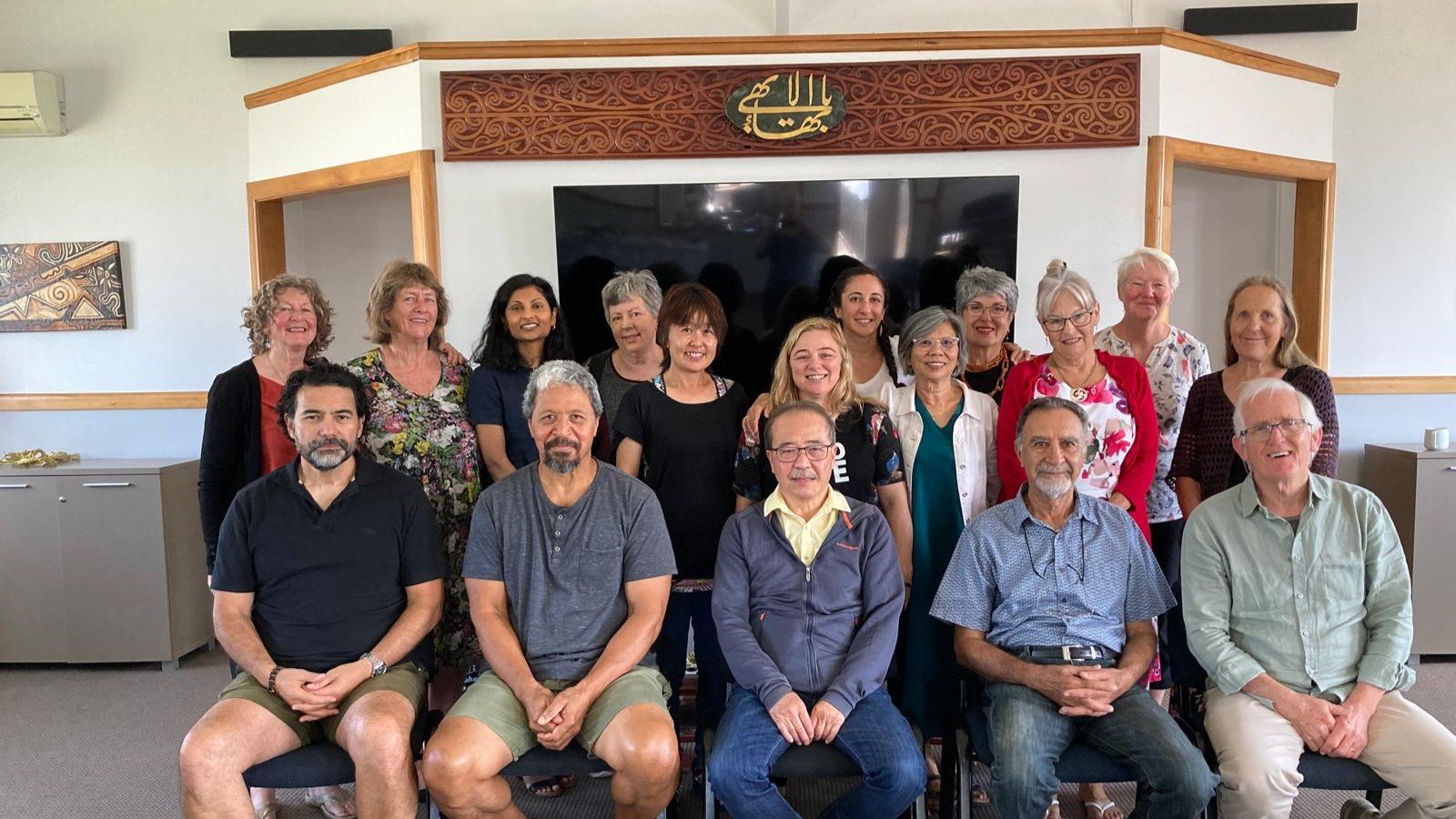Local Spiritual Assemblies pool their wisdom
In a novel step, the National Spiritual Assembly has hosted a series of online meetings for groups of Local Spiritual Assemblies. In nine meetings from 24 August to 2 September, all Local Spiritual Assemblies throughout the country were involved. Members of Regional Councils were also present in the meetings and offered valuable insights and encouragement to the Local Spiritual Assemblies.
Participants in the meetings appreciated the opportunity to share their communities’ situations with National Assembly representatives and with the members of other Local Assemblies in different parts of the country. Diverse groupings came together, such as Wellington, Hamilton and Christchurch in one meeting — and Masterton, Far North, Thames-Coromandel, Waikato, and Marlborough in another — to take just two examples.
Discussions centred on the herculean effort required for the final months of the Plan and highlighted “unity in diversity” as the foundation for a dynamic community life. Illumination on how to accomplish these aims came from the Universal House of Justice’s letter of 9 May 2020 to all National Spiritual Assemblies, with themes of agility in responding to evolving conditions, strengthening community resilience, encouraging more people to arise in service to Bahá’u’lláh, and demonstrating the distinctive features of the Bahá’í way of life.
Local Assemblies described capacities their communities are showing as they respond to the needs of the hour, and directions for growth that beckon to be advanced.
A few examples of capacities that were mentioned by particular Assemblies included:
Intensive neighbourhoods are accompanying a growing wave of young people
Care for wellbeing of individuals
Study of guidance
Several initiatives that support Māori engagement
Pioneers are helping increase engagement in core activities
Concern for wellbeing of young people
Focus on groups of families
Young people are keen to do things
Have some experience working as a team
Getting familiar with online technology
Working with the Regional Bahá’í Council
Believers are generally well-connected with friends in the wider community
Using Zoom for Feasts and Holy Days
Recognition of the need for outward focus and growth
Focus on core activities at each meeting
Good community spirit
Good attendance at Assembly meetings
Experience with neighbourhood community-building
Learning to be more systematic
Momentum from Bicentenary efforts
Learning to support pioneers
Increase in devotional gatherings
Regarding directions for growth that beckon to be advanced, a sample of those identified includes:
The need to sustain and increase community-building activities
Building stronger relationships with other institutions, such as the Area Teaching Committee
Strengthen learning capacity: Reflect on experience, allow decisions to build systematically
Continue supporting university youth
Capture learning from experiences
Improve community spirit — focus on improving the quality of Feasts
The need to form a nucleus of friends who activate growth initiatives
The need to learn about tikanga Māori
To increase consistency of support for the friends’ initiatives
Greater regularity of Assembly meetings
A desire to learn the history of the land
To learn more about supporting pioneers
Desire to rekindle relationships with local iwi
Sustain and increase core activities
The possibility for families to function as teams
Early indications suggest that the meetings had positive results as the participants expanded one another’s vision and heightened their sense of “doing battle in serried lines”, giving the National Assembly confidence that a victorious end to the current Plan is coming in sight.






